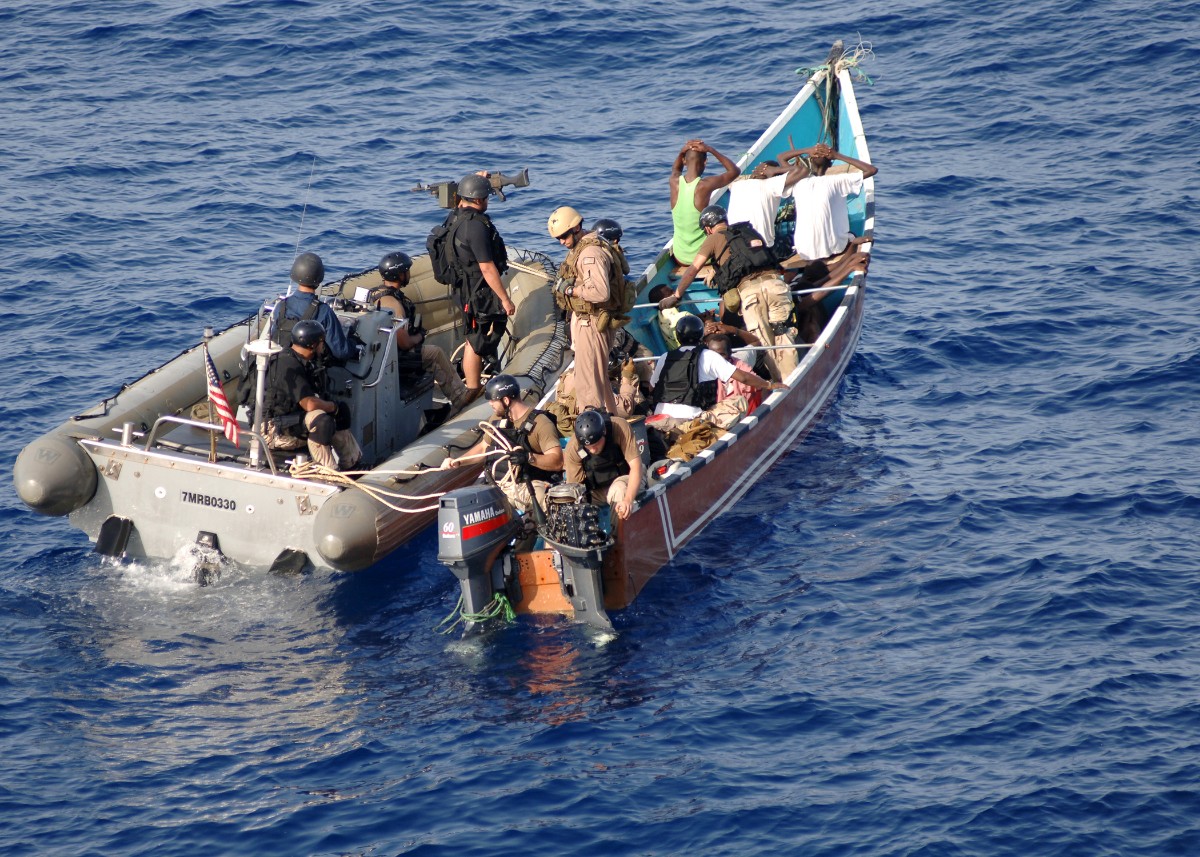 Photo Courtesy of U.S. Department of Defense
Photo Courtesy of U.S. Department of Defense
Plagued by Piracy: Are West African Waters Safe?
Last month, BBC published an article about how piracy has made the seas off of West Africa the most dangerous area in the world for ships. Piracy, an intentional attack on shipping in international water or an “armed robbery at sea,” includes activities such as hijacking, kidnapping, and robbery. Today, piracy primarily affects Africa, Southeast Asia, and Latin America and the Caribbean, with West Africa facing the most significant threat.
West Africa In Trouble
Somalia, a fragile state in East Africa, used to be the most prominent place in the world for piracy. The presence of foreign warships and a successful multi-national effort has made the East African waters significantly safer since 2012. But piracy wasn’t entirely eliminated with these efforts – instead, it moved to a new, vulnerable location.
In 2018, West African waters were attacked by pirates in 112 incidents, a significant increase from the 54 incidents the area experienced in 2015. Pirates attacked big tankers exporting oil and gas from Nigeria and Ghana, along with commercial ships and fishing vessels. The most affected area was the Gulf of Guinea, where a variety of tactics were used, causing the attacks to be unpredictable. In 2018, 2,012 seafarers were exposed to piracy and robbery in this area, an increase of 15% from the year prior. Ten vessels were successfully hijacked in the West African region, five of which were tankers.
West Africa has seen an increase in piracy as it experiences “poverty, political instability, a lack of proper law enforcement and a long list of lucrative targets.” Piracy has also increased as the area suffers from 20% unemployment, even higher among youths, and frustration over political corruption. In addition, West Africa has been the target of so many recent attacks because Nigeria, a prominent country located within the region, has abundant oil and gas fields. Today’s pirates are increasingly engaging in “petro-piracy,” where they target vessels carrying oil and gas.
Why Should We Be Concerned?
As many attacks use or threaten violence, piracy can be a danger to individuals, particularly unarmed civilians. It can also disrupt economies as pirates steal cargo and delay trips. This can lead to higher insurance premiums or fewer shipping companies willing to take the risk of doing business or transporting goods in the area. It is also possible that the “international standing of a trading country” is damaged and its ports are boycotted as a result. This could have global economic consequences.
There is also the more frightening possibility that pirates seize a large oil tanker and hold the ship for ransom, threatening to destroy it or otherwise spill its contents if the demands are not met. The damage would be catastrophic. A major oil spill would disrupt the entire ecosystem by killing fish, marine animals, and birds and damaging beaches and wildlife habitats. As evidenced with prior oil spills, the economic damage is also extensive, and it could cost billions to repair the environment. Conversely, if demands are met, pirates may continue to focus their targets on oil tankers and the threatening cycle would continue.
Policies Countering Piracy
International cooperation and joint training activities have worked in the past, as evident with Somalian pirates. During their peak, Somalian pirates engaged in approximately 200 attacks a year. With international efforts, the number of pirate attacks has plummeted.
Success against Somali pirates came from varied tactics. One method was increasing the effort to combat al-Shabaab terrorists on land and bringing order to the country through the capture of key ports. Additional efforts were made by the U.S.’ Task Force 151, the E.U. and NATO’s counterpiracy fleets, and individual warships sent by China, Russia, and India. Finally, commercial ships protected themselves by installing barbed wire on the lower decks, building safe rooms for crews in case the boat was captured, and hiring armed security guards.
However, it may be more challenging to stop the pirates off the coast of West Africa than it was to control those off of Somalia. The Somali government allowed international navies to have “free reign” and shipowners to hire private armed guards. Around West Africa, most of the pirates hail from Nigeria. The Nigerian government is more capable than Somalia’s, but it is also more reluctant to allow as many foreign ships and private guards in its waters.
It is unlikely that West Africa will utilize armed guards and international resources to the same extent as East Africa to address the growing issue of piracy. But something needs to be done – and quickly – as piracy continues to threaten the shipping industry and local populations.





